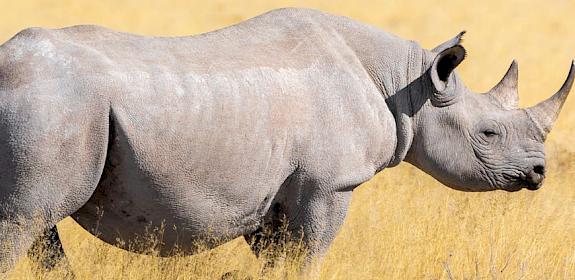WCO’s Operation GAPIN yields spectacular results
2nd March 2011—Operation GAPIN, an international enforcement initiative co-ordinated by the World Customs Organization (WCO), has resulted in the seizure of more than 22 tonnes and 13,000 pieces of protected wildlife.

The seizures included came from more than 31 species, including one live Barbary Macaque Macaca sylvanus, two dead macaques, 295 pieces of ivory (statues, jewellery, chopsticks, etc), 57 kg of raw ivory, four rhino horns, 4,726 kg of pangolin meat, 323 seahorses, and one leopard skin.
Most of the seizures and/or detentions were made in Kenya, Mozambique, Rwanda and South Africa with the balance made in countries outside Africa: Belgium, China, the Czech Republic, France, Hong Kong, Israel, Japan, the Netherlands, Romania, Spain, the United Kingdom, and Viet Nam.
More than 100 seizures of wildlife protected by the Convention on International Trade in Endangered Species of Wild Fauna and Flora (CITES) were made during the two-week transregional operation in January and February 2011 to combat the illegal cross-border trade in great apes and other wildlife species including their derivatives.
This initiative was conducted within the Framework of Project GAPIN—Great Apes and Integrity—which is financed by the Swedish Government and designed to stem illegal trade flows whilst cracking down on corrupt practices that help to fuel illicit trafficking.
Increasing wildlife crime and associated corruption is a matter of grave concern to governments and the international community; being on the frontline at international border crossings enables Customs to play a critical role in the fight against transnational organized crime which is more often than not linked to the smuggling of endangered species.
Other products detained during the operation and undergoing further investigation to determine their exact CITES status include: 5,300 kg of shark fins, 12,056 pieces of seashells, 11,250 kg of sea cucumbers and 1,000 kg of eel intestines.
“The World Customs Organization and its 177 Member Customs administrations remain committed to protecting the earth’s natural heritage through effective border enforcement,” said WCO Secretary General, Kunio Mikuriya.
“Enhancing Customs’ application of export controls on protected wildlife through capacity building and raising the awareness of frontline Customs officers on the dangers posed by corruption has ensured the success of this important transregional operation.”
Operation GAPIN was preceded by a one-week intensive, specialized capacity building training session in Mombasa, Kenya, for frontline Customs officials in December 2010, which focused on building the capability of officers to tackle wildlife smuggling more effectively and to identify integrity and corruption issues more readily.
Some of the countries participating in the training session made significant interceptions during the actual operation and moreover, Viet Nam Customs seized 1.2 tonnes of ivory shipped from Tanzania via Singapore just prior to the start of the operation.
“The WCO will continue its drive to build the capacity of Customs administrations across the globe to protect endangered wild fauna and flora through efficient and effective border enforcement in cooperation with its international, regional and national partners,” said Secretary General Mikuriya.
A total of 14 African countries participated in the operation, supported by 25 countries in Asia and Europe as well as the CITES Secretariat, the WCO Regional Intelligence Liaison Offices, the ASEAN Wildlife Enforcement Network, the Lusaka Agreement Task Force, the Pan African Sanctuary Alliance, and national CITES management authorities, wildlife enforcement agencies and in some countries the police.
“The WCO are to be congratulated on the success of Operation GAPIN which underlines the value both of training of enforcement officers and international co-operation in tackling transnational wildlife crime,” said Steven Broad, Executive Director of TRAFFIC.




